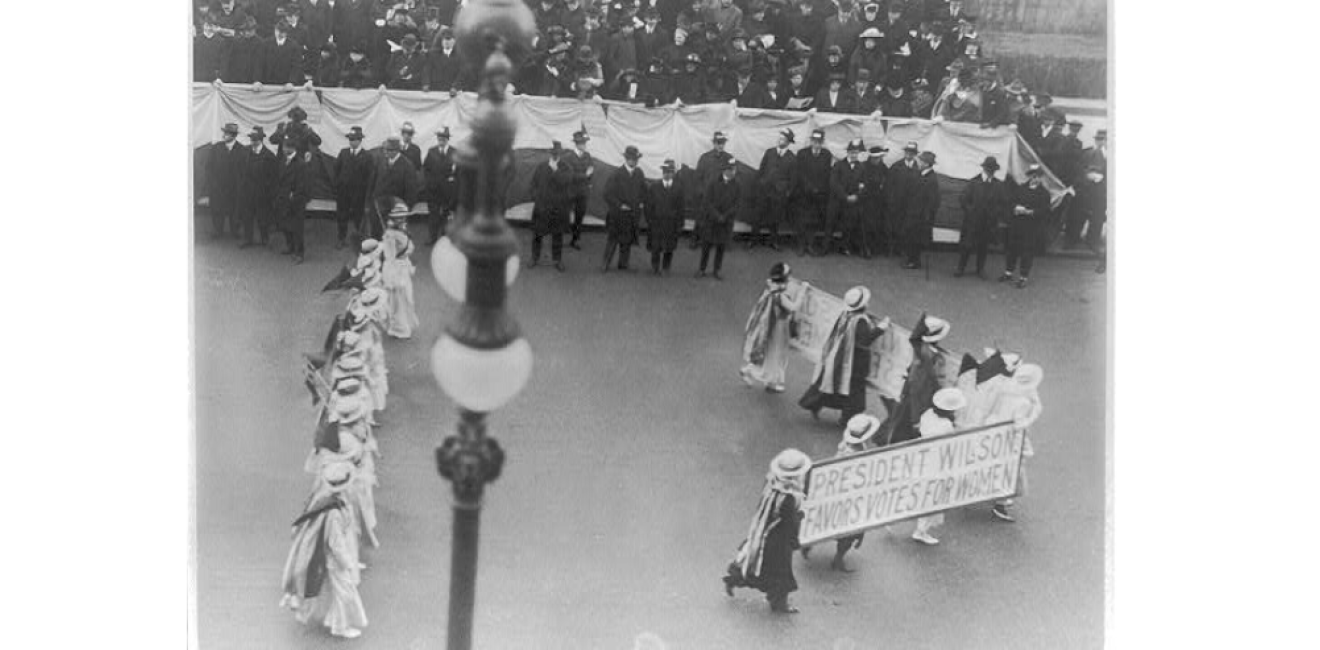It has been one hundred years since Woodrow Wilson stood as the leader of the United States, but his commitment to democracy and academia live on with the work and programs of the Woodrow Wilson International Center for Scholars.
The Women in Public Service Project, housed at the Wilson Center, honors President Wilson’s commitment to public service by educating and equipping the next generation of women leaders. As the Center celebrates the centennial, the Women in Public Service Project commemorates the advances made for women’s rights under Wilson’s term.
Woodrow Wilson entered office at the pinnacle of the women’s suffrage movement in 1913. Many historians say that President Wilson’s support for women’s suffrage was lukewarm at best, but the president, remembered by many as a moral crusader dedicated to the fervent ideals that intend to make the world a better place, did undergo an ethical metamorphosis after which he lent his support to women’s suffragists and actively fought on their behalf.
In 1917, suffragists picketed outside of the White House demanding Wilson’s support extend beyond what they deemed as mere lip service for the cause. Some picketers were arrested for refusing to give up their banners. Onlookers would often provoke or even attack the picketers, and police avoided intervention during these altercations. By October of that year, police announced that if the picketing persisted outside the White House, suffragists might face up to six months of prison time.
Wilson was appalled when he discovered that many of the women prisoners had gone on a hunger strike and were being force fed in the prison. He finally stepped in toward the fight for women’s enfranchisement, joining his daughter, leading suffragist Jessie Woodrow Wilson Sayre.
Wilson’s voice proved unequivocal in the ultimate passing of the 19th amendment. In a 1918 speech before the Congress, Wilson – for the first time in his time in office – publically endorsed women’s rights to vote. Realizing the vitality of women during the First World War, President Wilson asked Congress, “We have made partners of the women in this war… Shall we admit them only to a partnership of suffering and sacrifice and toil and not to a partnership of privilege and right?”
While Wilson’s words did not gather the necessary votes from the Senate to pass the amendment, the president continued to speak in its defense, consulting with members of Congress through personal and written appeals, often on his own initiative. Then on June 4, 1919, exactly ninety four years ago today, the 19th amendment finally received the votes necessary in the House to be sent to the states for ratification.
It would take another year before the 19th amendment was ratified by the necessary states, but the victory proved to be a turning point in the modern era of women’s rights in the United States. Recognizing the importance of the amendment’s ratification, Wilson spoke fondly of its passage saying that, “I deem it one of the greatest honors of my life that this great event, so stoutly fought for, for so many years, should have occurred during the period of my administration.”
Today, the Women in Public Service is grateful for the work of all parties that made this historic moment in women’s rights history possible and applauds Woodrow Wilson as a male ally in this momentous movement. As an organization, we too will follow in the steps of Woodrow Wilson as we continue to equip and advance a new generation of women committed to the public service.
For those interested in learning more about Woodrow Wilson and his role in the suffrage movement, please check out the sources of this article here and here.





